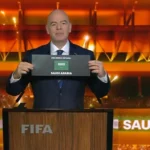Iran’s supreme leader, Ali Khamenei, stated on Wednesday that Iran and its allies in the Middle East remain strong, even after the fall of its key ally, Bashar Al Assad, in Syria.
Khamenei attributed Assad’s removal to efforts by the US and Israel, which he claims aimed to weaken Iran’s influence in the region. He highlighted the ceasefire agreement between Hezbollah, Iran’s ally in Lebanon, and Israel last month as part of this broader strategy.
“The more pressure you apply, the stronger the resistance becomes. The more crimes you commit, the more determined it grows. The more you fight, the more it expands,” Khamenei said, as reported by Iranian state media. He added, “Iran is strong and powerful—and it will grow even stronger.”
The ousting of Assad, a steadfast supporter of Iran, is viewed as a major setback for Tehran and its “Axis of Resistance.” This alliance includes Syria and militant groups like Hezbollah in Lebanon and Hamas in Gaza, which oppose Israeli and US influence in the Middle East.
During Syria’s civil war, Iran invested billions of dollars to support Assad’s government, deploying its Islamic Revolutionary Guard Corps (IRGC) and Hezbollah fighters to help him maintain power. These forces played a significant role in crushing opposition groups during the conflict.
The Iranian embassy in Damascus was looted following Assad’s removal. Rebel forces, led by Hayat Tahrir Al Sham, took control of Damascus on Sunday, marking the fall of Assad’s regime. In response, the Iranian embassy in Damascus was vandalized. Despite this setback, Iran signaled readiness to work with Syria’s new government, emphasizing a “far-sighted and wise approach.”
Turkey, a NATO member and a long-time backer of Syrian opposition forces, also played a significant role in Assad’s downfall. Since the start of the civil war in 2011, Turkey has supported groups opposing Assad while fighting the Syrian Kurdish YPG militia.
Khamenei claimed the offensive leading to Assad’s fall was orchestrated by the US and Israel, with involvement from a neighboring government—an apparent reference to Turkey. “The neighbor played a clear role and continues to do so,” he said.
Despite these challenges, Iran’s leadership has urged Syria’s new rulers to form an inclusive government representing all parts of society.





